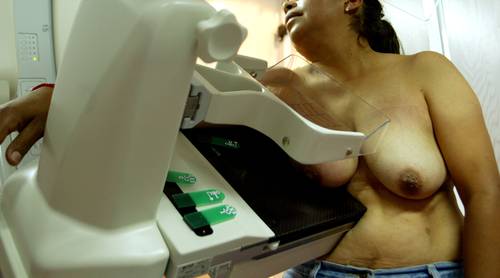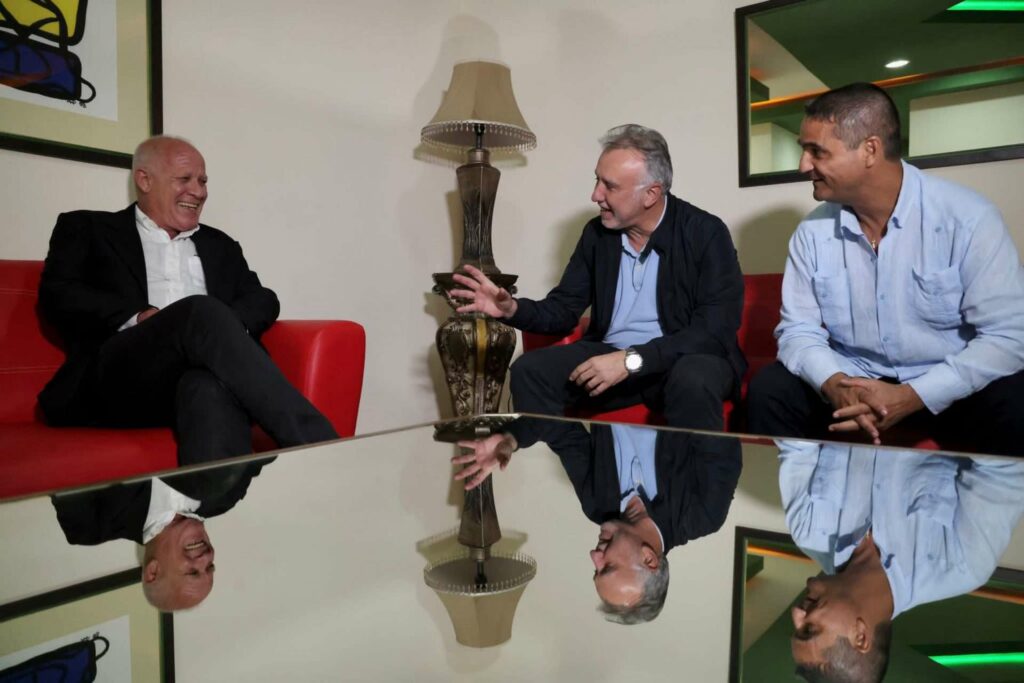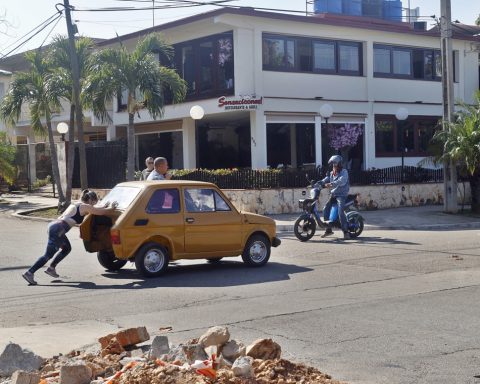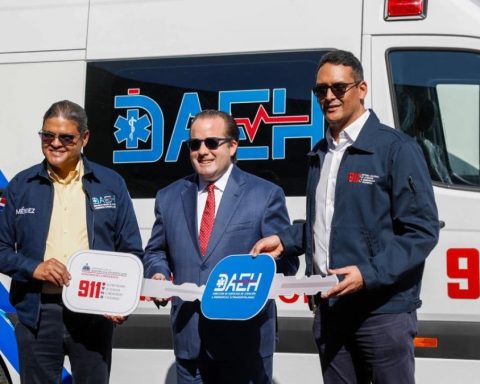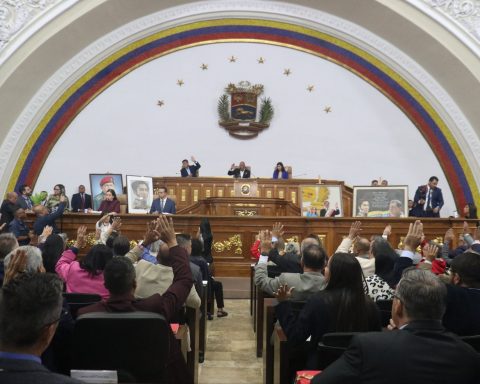▲ Mammography in a health dayPhoto Luis Castillo
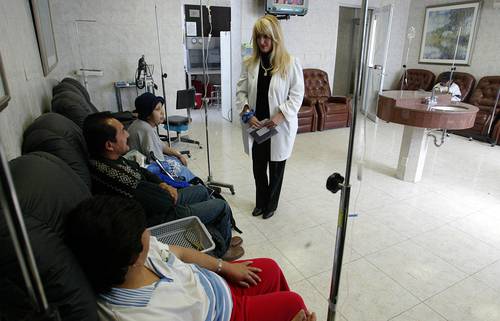
▲ Cancer patients in a hospital in Mexico City.Photo Maria Luisa Severiano
angeles cruz martinez
Newspaper La Jornada
Sunday February 5, 2023, p. 6
Cancer is a medical emergency in Mexico. Patients should receive expedited care and with the best treatment standards, but this is not the case, since 95 percent of those affected lives an ordeal before arriving with a specialist
warned Óscar Arrieta Rodríguez, coordinator of Oncology of the General Health Council (CSG).
Although in the past four years there have been improvements in the country because there are now medicines for neoplasias that were not covered by the now defunct Seguro Popular, the challenges are multiple.
Arrieta is in charge of developing a comprehensive cancer care plan, which seeks to reverse a complex range of problems accumulated over decades, ranging from the lack of a national registry of cases, late diagnosis, and inequity in the availability of treatments, among others.
In an interview on the occasion of World Cancer Day (February 4), he stressed that for years in the country inequality and conflicts of interest that favored the pharmaceutical industry prevailed. It was evident with Seguro Popular, which supposedly offered universal coverage, but for more than half of cancer patients there was no medicine and no interest from manufacturers for the CSG to authorize new therapies. On the other hand, for tumors, whose costs were covered by this financing scheme, the introduction of innovative drugs was constant.
On a global scale, half of neoplasms are cured, but not in Mexico, where these diseases represent the third cause of death in the general population, with around 90,000 deaths per year, and are the leading cause of loss of life in people of productive age, said the specialist.
International estimates indicate that in the next two decades the number of deaths will double if the current trend continues and due to the aging of the population. As life expectancy increases, so does the risk of developing a malignancy.
Arrieta Rodríguez commented that the national situation is similar to that of other low- and middle-income countries, in which it is expected that 65 percent of the increase in mortality in the world will be concentrated.
One of his proposals is to create early detection and referral centers, which would increase timely diagnosis and the chances of cure for patients by 20 percent, while updating clinical guides for the management of neoplasias would increase that percentage.
He highlighted the case of childhood cancer, whose care protocol has remained unchanged for the past 15 years, and Of course there have been innovations that have not been incorporated!
He regretted that media attention has focused on the supply of medicines, when There is so much to do
so that infants receive the best therapies.
The specialist, who in addition to being the head of the Thoracic Oncology Service of the National Institute of Cancerology (Incan), is the new coordinator of the National Cancer Registry, commented on the proposed Health Policies Agenda against the disease that he prepared with a twenty experts in Oncology within the CSG.
In the document that will be presented to the Ministry of Health (Ssa), it is highlighted that the existence of different health organizations is one of the difficulties to be faced, since it favors inequalities in access to care and insufficient use of the installed infrastructure. in the Republic.
National Register
To reverse this problem, it proposes a series of actions with the aim of promoting prevention, timely detection and effective treatment for the 150 known types of cancer. The first thing will be to have the National Cancer Registry, a project that has existed for at least eight years and has not been possible due to lack of money, despite the fact that the General Health Law establishes the obligation to have this tool.
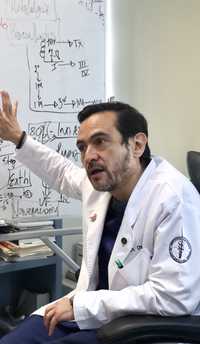
▲ Seguro Popular favored the pharmaceutical industry, says Óscar Arrieta, coordinator of Oncology at the General Health Council.Photo Jesus Villaseca
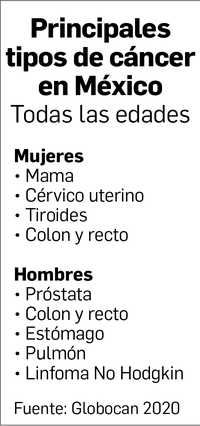
Now, with an initial allocation of 17 million pesos, Arrieta takes it up again to obtain data on the incidence, quantity and characteristics of the tumors, types and stages at the time of diagnosis, among others. It is also contemplated to prepare a hospital registry to know the conditions of the patients.
With the information provided by both instruments, it is possible to plan the needs of hospitals, equipment and medicines.
The census will be taken in 10 cities of the Republic: Mérida, Tijuana, Guadalajara, La Paz, León, Monterrey, Ciudad Obregón, Veracruz, Villahermosa and Puebla. Thus, representative information of the Mexican population will be obtained.
Arrieta, a level III national researcher, also announced that he is proposing the creation of the Cancer Code, similar to the Heart Attack Code that has been in operation at the Mexican Institute of Social Security (IMSS) for several years to expedite patient care and with which succeeded in lowering mortality.
In the case of tumors, the project provides for the installation of Early Detection and Reference Centers, where people suspected of having a neoplasia will arrive. There the clinical studies will be carried out, including the biopsy, if applicable, and the diagnosis. With the result, social workers will take charge of sending the patient to the nearest specialty hospital, regardless of affiliation or right, and ensure that the patient is received and cared for in the hospital.
The goal is to start treatment within a maximum period of four weeks.
He added that a tumor treated in the advanced stages is four to 15 times more expensive than in the initial stages, and as time goes by, the possibility of survival and even cure decreases. We want cancer to be seen as an emergency, which it is, life or death
with repercussions on the family and country economies, Arrieta said.
Inequity in treatment
The proposed agenda against cancer places inequality as another challenge. There are different clinical management guides in each health institution, some are frequently updated to include new drugs that offer greater hope and quality of life.
On the other hand, for other also important tumors, such as stomach, leukemia, lung, there was nothing, not even for the most basic.
Now, from the Oncology Committee of the General Health Council, Arrieta coordinates the work to have unique updated care protocols for 150 types of cancer.
Based on these guides, the demand in the consolidated purchase of medicines will be determined, it will be possible to negotiate with pharmaceutical laboratories the prices of their products, which are very high and on many occasions impossible to pay.
Another issue is that of molecular tests, currently essential because they determine which patients will obtain a real benefit from the treatment.
Arrieta explained that Mexico lacks public laboratories to carry out the studies. All are carried out through the pharmaceutical industry that pays for the clinical investigations that later lead to the change of therapies to introduce new drugs.
Hence the proposal to create a national molecular testing laboratory to stop depending on that industry, he concluded.
